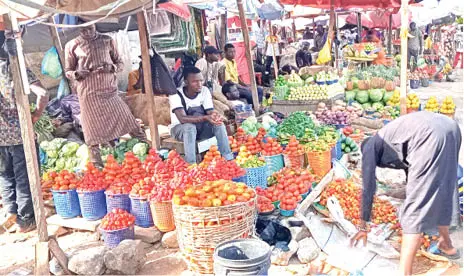Despite a recent decline in food inflation across Nigeria, many residents of the Federal Capital Territory (FCT) continue to struggle with low purchasing power, making it difficult to buy staple food items.
Residents who spoke with the News Agency of Nigeria (NAN) attributed the challenge to limited income.
“Although some food items have slightly reduced in price, the difference is not yet significant due to low earnings,” they said. According to the National Bureau of Statistics (NBS), Nigeria’s annual food inflation rate dropped to 16.87 percent in September 2025, down from 21.87 percent in August, largely due to seasonal harvests of grains such as maize and millet.
At local markets, the reduction is evident: a bag of local rice dropped from N75,000 to N57,000, foreign rice from N90,000–N100,000 to N70,000, while a dustbin basket of pepper fell to N2,000–N2,300.
Despite this, many households reported that the lower prices have not translated into affordability. Civil servant John Okeke said, “If food prices have dropped, are they really affordable to the common man?
After paying rent, school fees, transport, and other expenses, little is left for household needs.”
Meanwhile, Minister of State for Agriculture and Food Security, Aliyu Sabi, attributed the price decline to improved local production and government intervention programs, including the National Agricultural Growth Scheme (NAGS) Agro-Pocket Programme, which injected over 500,000 metric tonnes of wheat, maize, cassava, and other crops into the market.



